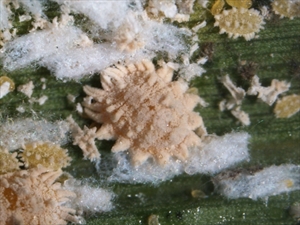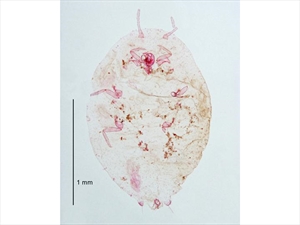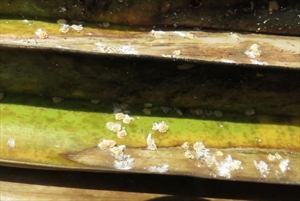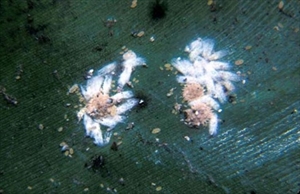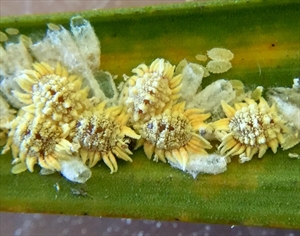- Worldwide distribution. On fruit crops, palm species, and ornamentals. Mealybug of minor importance, except where tended by ants.
- Damage: (i) feeding turns plants yellow and weak; (ii) honeydew drips onto foliage and sooty moulds weakens plant growth.
-
Adult (females) up to 2.5 mm long, covered with beige, reddish-brown, yellowish-orange, wax, over reddish-brown to orange body. Wax on top in pyramids, similar to those on margins. Males develop inside cottony cocoons, emerging as tiny fly-like insect with wings, large eyes, legs.
- Spread by 'crawlers' (nymphs) walking, or carried by wind, vehicles, animals, birds, on clothing, and trade in plants.
- Natural enemies: ladybird beetles and parasitoid wasp (Pseudaphycus).
-
Chemical control: soap solution, horticultural or white oils (see Fact Sheet no. 56); avoid malathion and synthetic pyrethroids - they will kill natural enemies. Use pyrethroids against ants.
